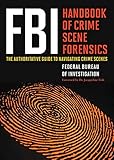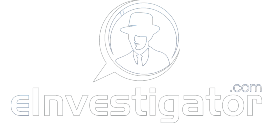This article provides an overview of forensic science and includes a list of recommended forensic science books to help you learn more about the subject.
Forensic science applies to a broad spectrum of sciences to answer questions of interest to a legal system. It includes the science, procedures, and tools to help a private investigator conduct thorough crime scene investigations.
Private Investigators are often hired to conduct CSI-related inquiries for clients who may be dissatisfied with the results of the police investigation. A private detective with the right skills and knowledge can uncover errors in police procedure, the handling of evidence, the preservation of scenes, and more.
List of Forensic Science Books from Amazon.com
The following books provide helpful information and education to help you learn about the science and crime scene procedures involved in this exciting field. In addition, you’ll find information about how forensic labs work and the types of analyses done in the lab, such as processing and analyzing DNA evidence.
Also, the books explain the tools, equipment, and software used to conduct the investigations and how the results are analyzed, interpreted, and reported.
| Preview | Product | Price | |
|---|---|---|---|

|
Forensics: What Bugs, Burns, Prints, DNA, and More Tell Us About Crime |
$13.39 |
Buy on Amazon |
McDermid, known for her best-selling books, delves into the history of forensics. She explores forensic scientists’ crucial role in solving crimes and deciphering messages from crime scenes, corpses, or faint human traces. The paperback edition of “Forensics” takes readers behind the scenes with top professionals, sharing groundbreaking research through original interviews and firsthand experiences. From using maggots to determine the time of death to convicting killers with minuscule DNA traces, the journey spans war zones, fire scenes, and autopsy suites. It unveils the evolution of forensics, showcasing extraordinary bravery and true wickedness.
| Preview | Product | Price | |
|---|---|---|---|

|
Forensics For Dummies |
$19.49 |
Buy on Amazon |
Forensics For Dummies provides an engaging look into crime scene investigation, offering insights from a doctor and former Law & Order consultant. This guide simplifies the complexities of forensics, covering everything from fingerprints to ballistics. It dispels Hollywood myths, showcasing real-world forensic work in biology, psychology, anthropology, and more. Whether you’re curious about a forensics career or a true fan, the book details morgue processes, forensic psychology, and the diverse roles in the field. Unlike TV dramas, it emphasizes the time and technology involved in solving cases, offering a realistic view of the fascinating world of forensic science.”
| Preview | Product | Price | |
|---|---|---|---|

|
FBI Handbook of Crime Scene Forensics: The Authoritative Guide to Navigating Crime Scenes |
$17.99 |
Buy on Amazon |
The FBI Handbook of Crime Scene Forensics offers guidance and procedures for safe and efficient methods from the FBI’s Laboratory and Operational Technology Divisions. This official procedural guide is intended for law enforcement agencies, attorneys, and tribunals submitting evidence to the FBI. It covers proper methods for investigating crime scenes, examining and shipping evidence, and adhering to safety protocols. The handbook addresses various types of evidence, including bullet jacket alloys, computers, hairs, inks, lubricants, ropes, safe insulations, shoe prints, tire treads, and weapons of mass destruction. Special emphasis is placed on recording crime scenes through narratives, photos, videos, audiotapes, or sketches. Suitable for both professional forensics experts and laymen, the handbook provides insight into investigative police work and the criminal justice system.
The Twelfth Edition of Criminalistics: An Introduction to Forensic Science offers a clear introduction to modern crime laboratory technology for non-scientists. It captures the excitement of forensic science investigations using clear writing, case stories, and modern technology. Tailored for readers without a scientific background, the book focuses on the most relevant scientific and technological concepts. It defines the nature of physical evidence, explores limitations imposed by technology, and discusses common items encountered at crime scenes. The updated edition includes a new chapter on forensic biometrics, maintaining its clarity for a diverse range of students.
Other books:
- Forensic Science: An Introduction to Scientific and Investigative Techniques
- A Question of Evidence: The Casebook of Great Controversies, from Napoleon to O.J.
- Death Investigators Handbook: A Field Guide To Crime Scene Processing, Evaluations, And Investigative Techniques
Forensic Accounting
Forensic accounting is a specialty practice area of accounting that describes investigations that result from actual or anticipated disputes or litigation.
Forensic accountants and auditors must often provide expert opinions and present evidence in a court trial.
All of the larger accounting firms, as well as many medium-sized and boutique firms, have departments dedicated to this specialty. Within these groups, there may be further sub-specializations. Some accountants specialize in reviewing insurance and personal injury claims, investigating fraud, or performing royalty audits.
Private detectives who conduct financial investigations and asset searches may leverage skills and techniques from this specialty field. The depth of knowledge and skills required to succeed generally requires a degree and experience in accounting or some financially related field.
Specific training in forensic accounting is often included as a part of the degree program or can be taken as a part of the elective requirement.
Forensic Accounting Books
Following is a brief overview of forensic accounting and a list of the best forensic accounting books to help you learn more.
Books are a great way to supplement your education and experience and develop new skills that will be helpful in your financial investigation cases.
Books on this topic will help you learn how to:
- Identify the types of organizations where financial fraud is most likely to occur
- How to detect accounting fraud and what to do when you uncover it in an organization
- How to document fraud cases and prepare evidence for presentation in a court of law
- The skills, techniques, and equipment used in the trade to verify that proper procedures are used and when they are being abused
The Financial Numbers Game Detecting Creative Accounting Practices
Forensic Accounting and Fraud Investigation Non-Experts (Hardcover) – This helpful book explains how financial fraud occurs and what to do if you uncover it within your company.
A Guide to Forensic Accounting Investigations Book – Explains various fraud detection techniques and the type of work involved in conducting financial investigations.
Questions and Comments
Please comment below if you have any questions about these forensic science books. If you’d like to learn about other areas of investigation, check out our other private investigator books.






